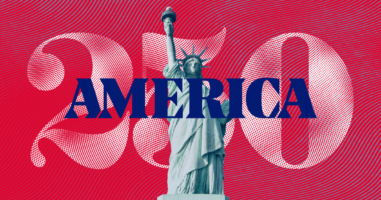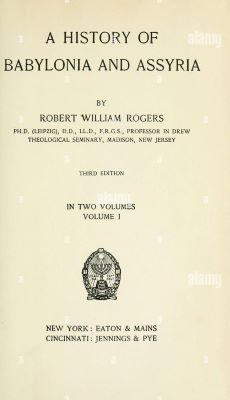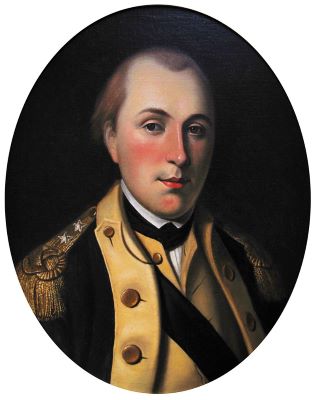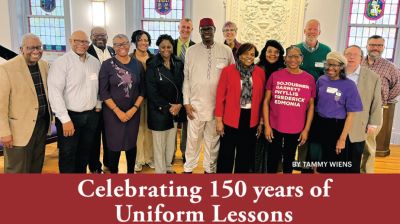
As we approach the three year countdown to July 4, 2026, it is an appropriate time to provide an update on what had and has not been going on with American Revolution 250th. The last time I wrote about it was July 1, 2022 (Controversy at the United States Semiquincentennial Commission). Regrettably, it does not seem as if the situation is much improved since then judging by an advocacy notice I received on May 12, 2023, from the American Association for State and Local History AASLH). That organization that has been quite active in promoting the event to its members and interested history people.
AASLH Members and Friends:
As a valued member of the history community, we are reaching out to you to ask for your support in commemorating our nation’s upcoming 250th anniversary by asking your Members of Congress to join the Congressional America250 Caucus. We need your help to encourage Members of Congress to join this important caucus.
With the 250th just three years away, your efforts are urgently needed. We would like you to contact the members of your Congressional delegation and encourage them to join and support the activities of the America250 Caucus in the United States Congress. We have provided a draft email for your consideration below in the event it is helpful.
As a member of the America250 Caucus, lawmakers will work together to commemorate this significant milestone in our nation’s history and promote national unity and civic engagement. The Caucus will provide a forum for members of Congress to collaborate on ways to engage their constituents, support local events and activities, support the work of history museums and other history organizations, and highlight the importance of our shared history.
Please take a moment to contact your Congressional delegation and ask them to join the America250 Caucus.
Thank you for your support in helping to commemorate America’s Semiquincentennial.
Sample Email
Dear Representative / Senator _______,
I hope you’re doing well. On behalf of (Insert Organization Name), I respectfully request that Representative / Senator (Insert Name) join the bipartisan America250 Caucus, chaired by Representative Robert Aderholt (R-AL) and Representative Bonnie Watson Coleman (D-NJ). With the 250th anniversary of our nation’s founding rapidly approaching, we want to ensure that we do not miss out on the opportunity for Americans to learn and reflect on the themes and ideals that unite all of us, including liberty, freedom, and civic engagement. Please contact Laura Titus (laura.titus@mail.house.gov) with Representative Robert Aderholt or Brad Korten (brad.korten@mail.house.gov) with Representative Watson Coleman to join the caucus.
Thank you for your consideration.
Reading between the lines, I perceive this plea as a recognition that all is not right with the world of the American Revolution 250th. There is a need to act at the federal level. Since the federal organization is geared towards Philadelphia on July 4, 2026, any funding to support events at the local level will need to be distributed well before then. All such funding will be through the state 250th organizations.
VIRGINIA 250th: A STATE TAKES THE LEAD
Drilling down from the national level, there are events in Virginia worthy of interest. One should keep in mind that it was Virginia which advertised on the AMC show Turn (AMC Mocks the Path through History August 28, 2016) about the spy network in New York (which did not advertise on the four-year series). In addition, I attended an online meeting about Virginia’s activities on the 250th and summarized the meeting in the blog The 250th Anniversary: A Commonwealth of Virginia Case Study February 1, 2021, over two years ago.
Now Virginia continues to move forward. It convened a meeting held in March which Johanna Yaun, the Orange County historian (full-time position) and chair of the Orange County 250th Commission. The following are excerpts from the report she wrote about the meeting.
3/18/2023
The Virginia American Revolution 250 Commission invited representatives from across the Nation to participate in a three-day planning meeting of Semiquincentennial stakeholders. From March 10-12, 2023, attendees from 34 states met for “A Convening of States” to mark the occasion of the 250th anniversary of the call for Committees of Correspondence on March 12, 1773. After a reading of the 1773 resolution, state representatives affirmed a new resolution “of mutual support, collaboration, and partnership, signaling the beginning of the Semiquincentennial.” (Although we in New York State beg to differ since we declared the beginning of the 250th anniversary of the Battle of Golden Hill anniversary at Fraunces Tavern on January 19, 2020, See Post). The inclusion of delegates from many states made the ceremony particularly impactful.
These comments highlight the fact that the American Revolution already was underway 250 years ago. There are anniversary events which could be commemorated now. One also wonders why it was a state which convened the meeting and not the national commission. Actually one does not wonder – the federal commission is not functioning.
The pinnacle moment of the weekend was an announcement made by Virginia Senator Thomas K. Norment that the state government was investing $8 million dollars to support the 250th anniversaries and facilitating another $1 million in a donation from Dominion Energy for the same. These investments were made with the expectation that such an investment in civics resources would yield over $1.5 Billion in heritage tourism revenue and support more than 22,000 jobs. These estimates were based on the economic boosts seen during the 1607/2007 and 1619/2019 anniversary periods, focused on the founding of Historic Jamestown.
This is serious money. These comments reflect what was true at the meeting I attended online in 2021. Virginia is committed to making the anniversary a big deal. And like New York, Virginia knows that the story doesn’t cease with the signing of the Declaration of Independence. It also shows that the state is prepared to commit resources to make the anniversary a success. The logical question then what is your state you doing besides waiting for the federal commission to get its act together and be relevant at least before its expiration in 2026.
With one third of the battles of the Revolutionary War taking place in New York State and 81 Revolutionary War museums in the state, many concentrated conveniently in the heavily touristed New York City, Long Island and Hudson River Valley region, this begs the question, why not us?
Some of the blame for this is on the shoulders of the U.S. Semiquincentennial Commission and non-profit arm America 250 who have failed to meet any tangible goals since their founding (and funding) in 2016. When America 250 dropped the bomb in January/February of 2023 that they had laid off most of their staff and were “embarking on an organizational realignment” which essentially pushed all responsibility to the individual states, the disparity between the prepared and the unprepared, widened. But as for New York State specifically, I’ll refrain from providing any insight while we wait (and hope) to see if Governor Kathy Hochul’s budget will address this issue by the end of the month.
But while New York State thus far waits, Virginia has stepped in to offer leadership and benefit from economic gain of providing the venue for stakeholders to convene. Hosted by the Colonial Williamsburg Foundation at the Williamsburg Lodge, 300 public historians and government officials were treated to programming and social events aimed at fostering partnerships and communication on the eve of the commemorative period.
This deterioration at the federal level led to the letters from two New York State elected officials (future blog). It also shows that there will be no effort at the national level to craft a new national narrative for the 21st century. History organizations are not going to fill the void either.
President of the Association of State and Local History, John Dichtl, set the tone by presenting two opportunities that the Semiquincentennial period offers. The first is that by popularizing and showcasing “the full sweep of our shared history,” the Founding period can be used as a starting point to attach new meaning for people and groups who have advanced “towards justice” over the past 250 years. He mentioned that 86% of the America public agrees on fundamental ideas about National history and that a Semiquincentennial that both celebrates our strengths and addresses our fallacies is essential to fostering inclusion, relevance and belonging.
The second opportunity he highlighted is that this exploration of America at 250 is a chance to reinvigorate the history profession and bring new support to historical societies and museums. An interesting statistic that was presented was that 35-40% of all history organizations were created in 1966–1986 time frame, a decade before and a decade after the Bicentennial of the Declaration of Independence on July 4, 1976. The hope is that the 250th will be another moment of reflection for the Nation and a recognition that we should never stop fighting over our past nor the direction of our future.
There are two problems not addressed in these comments by Dichtl as reported by Yaun:
1. The people who formed these new historical organizations after the Bicentennial are now up to 50 years older. Anyone involved in local non-profit volunteer organizations is aware of the trials and tribulations in attracting new members, finding people willing to serve on Boards and getting people to actually do something. Just think of the technological changes which have occurred since the Bicentennial – we are living in what may be considered science fiction times to the people of 1976 and who still are in charge.
2. The local history organizations are likely to focus on local events about what happened in their community and not the full sweep of our shared national history. Quite possibly at the local level, if there is an effort to go beyond that there will be a replay of the current squabbles over 1619, CRT, and divisiveness. It will be interesting to see how Virginia spends the money it has allocated for the 250th.
Next, Susie Wilkening of Wilkening Consulting offered remarks on her demographic research and how it relates to 250th planning. She discussed intersections of patriotism and identity and looked at what concepts and words divide vs. unite likely museum-goers. She found common ground in that the majority of people expressed that “history is valued and important,” but that it needs “to be engaging” while still maintaining a relaxing tone. The majority of people “feel good about learning” but express that they prefer “hands-on, interactive, living history” to keep their interest. Respondents ranged along a spectrum from wanting patriotic programming to focus on “the 3 F’s, food, fireworks, family” to a focus on critical thinking about the Nation’s strive for “a more perfect union…”
That last sentence is critical. While there are people and organizations that are concerned about the 250 year effort to strive for a more perfect union since the Revolution, many people are content with the Bicentennial approach particularly at the local level of patriotic food, family, fireworks and parades with nary a woke person in sight.
Yaun described the conference activities in the rest of her enewsletter. In the next blog I switch to the topic of education, both academic and k-12, highlighting Virginia.






It’s interesting to observe the contrasting dynamics between the sesquicentennial in certain circles and the broader national and international landscape, for those of us who are actively collaborating with organizations like the NCPH, the National Park Service, and Parks Canada to prepare for it. Sue’s findings hold immense value as they align with what we are increasingly witnessing firsthand:
a) The majority of audiences acknowledge that the anniversary of many of the pivotal events informing the Revolution have already occurred, largely without much notice. As a result, the 250th primarily centers around the Declaration of Independence and, to a lesser extent, the events of the war itself—which garners even less interest as it becomes increasingly politicized.
b) The majority of interested audiences prioritize a critical examination rather than a celebratory commemoration of either the Declaration or the war. They seek active engagement that encourages a deeper understanding and analysis.
c) The audiences that do care, representing a specific, small demographic, tend to remain local and concentrate their interest within their geographic regions. Consequently, there is little expectation of temporary boosts in visitorship from families in Virginia, for instance, to sites in and around Philadelphia.
We’re finding that most audiences perceive an opportunity for critical engagement through online platforms and visual media. However, they stress the importance of presenting a more representative narrative that challenges the prevailing celebratory orthodoxy. As practitioners working on a broad scale with creators and audiences, such as at The Public Historian, we view the 250th anniversary as an opportunity to engage people in the collaborative creation of new perspectives on the conflict. It serves as a chance to move away from tired narratives that many Americans now question. But that opportunity gives us a real chance to connect with a whole new generation that is seeing the “Revolution” in a rather new light.
I am not sure how many people are really thinking about the 250th yet. It may not happen until after the 2024 elections. 250 is such a strange number it doesn’t really resonate. But I could be wrong.